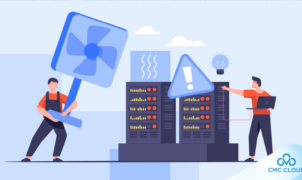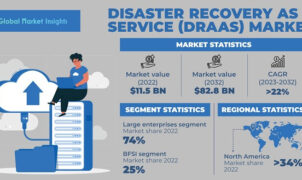
An air conditioning system not only helps maintain a comfortable living environment but can also save energy. However, for optimal performance and energy efficiency, regular maintenance and repairs are essential. Below is a detailed guide from experts on how to increase efficiency and save energy for your air conditioning system.
1. Regular Maintenance:
Regular maintenance is the cornerstone of ensuring optimal performance, longevity, and energy efficiency for HVAC systems. It involves a series of tasks that need to be performed at regular intervals to keep the system functioning effectively. Here are key aspects of regular maintenance:
Filter Replacement:
One of the fundamental tasks in HVAC maintenance is the timely replacement of air filters. Air filters prevent dust, dirt, allergens, and debris from entering the system, thereby improving indoor air quality and system efficiency. Clogged or dirty filters obstruct airflow, forcing the system to work harder, which not only reduces efficiency but also increases energy consumption. Experts recommend checking and replacing filters every 1 to 3 months, depending on usage and filter type.
Inspection of Ductwork:
Regular inspection of the ductwork is vital to ensure it’s free from leaks, blockages, or damage. Leaky ducts can lead to air loss, resulting in reduced system efficiency and increased energy consumption. Professionals can inspect and seal any leaks or gaps, improving overall system performance.
Cleaning Coils and Components:
Over time, the evaporator and condenser coils in HVAC systems can accumulate dirt, dust, and debris. This buildup reduces the system’s ability to transfer heat effectively, leading to decreased efficiency. Cleaning coils and components as part of regular maintenance helps maintain proper heat transfer and system efficiency. Additionally, cleaning other components such as blower fans and drainage pans prevents blockages and potential water damage.
Lubrication and Component Checks:
Moving parts in HVAC systems, such as motors and bearings, require adequate lubrication to function smoothly. Regularly lubricating these components reduces friction, minimizing wear and tear, and prolongs the system’s lifespan. Technicians also check electrical connections, belts, and other components for signs of wear or damage and perform necessary repairs or replacements.
System Calibration and Testing:
Calibrating and testing the HVAC system ensures it operates at peak efficiency. This includes checking thermostat accuracy, airflow measurement, refrigerant levels, and overall system performance. Proper calibration and testing identify potential issues before they become major problems, optimizing energy efficiency and preventing system breakdowns.
Professional Maintenance Services:
While some maintenance tasks can be performed by homeowners, hiring professional HVAC technicians for comprehensive maintenance ensures thorough inspections, precise adjustments, and adherence to manufacturer recommendations. Professionals have the expertise and specialized tools to conduct in-depth inspections and address issues that might otherwise go unnoticed.
Regular maintenance not only keeps an HVAC system running smoothly but also contributes to energy efficiency, cost savings, and improved indoor air quality. By adhering to a scheduled maintenance plan and addressing issues promptly, homeowners can ensure their HVAC system operates efficiently and effectively throughout its lifespan.

2. Calibration of Settings:
Calibrating the settings of an HVAC system is crucial for optimizing its efficiency and energy-saving capabilities. Fine-tuning various settings helps ensure the system operates at its best while consuming minimal energy. Here are key aspects of calibrating HVAC settings:
Temperature Settings:
Adjusting temperature settings intelligently is essential for both comfort and energy savings. Keeping the thermostat settings moderate and close to outdoor temperatures reduces strain on the system, leading to less energy consumption. Programmable thermostats offer the advantage of setting different temperatures for various times of the day or based on occupancy, maximizing comfort while minimizing unnecessary cooling or heating.
Energy-Saving Modes:
Modern HVAC systems often come equipped with energy-saving modes. These modes adjust system operation to optimize energy consumption without compromising comfort. When the indoor environment doesn’t require drastic temperature changes, activating the energy-saving mode can significantly reduce energy usage and associated costs.
Zoning and Airflow Control:
Utilizing zoning capabilities in HVAC systems allows for customized temperature settings in different areas or zones of the house. By regulating airflow to specific areas based on need, homeowners can avoid wasting energy in unoccupied spaces. Zoning also allows different areas to maintain optimal comfort levels according to individual preferences.
Humidity and Ventilation Control:
Balancing humidity levels within the home not only contributes to comfort but also affects energy usage. Adjusting humidity settings appropriately ensures a comfortable environment while minimizing the workload on the HVAC system. Proper ventilation control also aids in maintaining indoor air quality and energy efficiency.
Seasonal Adjustments:
Adapting settings based on seasonal changes optimizes HVAC system performance. For instance, adjusting temperature settings slightly higher in summer and lower in winter while still maintaining comfort levels can significantly impact energy consumption. Reassessing and recalibrating the system settings as seasons transition can ensure efficiency throughout the year.
Smart Technology Integration:
Smart thermostats and HVAC systems equipped with advanced technology allow for seamless control and automation. These systems learn user preferences and adjust settings accordingly, optimizing energy usage while maintaining comfort. Integration with smart home ecosystems enables remote control and access, further enhancing energy-saving capabilities.
Regular Monitoring and Adjustments:
Regularly monitoring and adjusting system settings based on changing circumstances or specific needs is essential. Factors such as occupancy patterns, changes in outdoor temperatures, or household preferences may require periodic adjustments to maintain efficiency and energy savings.
Calibrating settings in an HVAC system is a continuous process that requires attention to detail and understanding of the system’s capabilities. By fine-tuning temperature, airflow, humidity, and utilizing smart technology, homeowners can achieve optimal comfort and significant energy savings. Regularly reviewing and adjusting these settings ensures the HVAC system operates efficiently year-round.

3. Professional Repairs:
Professional repairs play a pivotal role in maintaining the functionality, efficiency, and longevity of HVAC systems. Engaging certified technicians or HVAC professionals ensures accurate diagnostics, effective solutions, and compliance with safety standards. Below are key components of professional repair services for HVAC systems:
Comprehensive Diagnostics:
Professional HVAC technicians conduct comprehensive diagnostics to identify underlying issues accurately. Utilizing specialized tools and knowledge, they pinpoint problems affecting the system’s performance. This includes assessing electrical components, refrigerant levels, airflow, and overall system operation.
Precision Repairs:
Upon identifying issues, skilled technicians perform precise repairs using industry best practices. Whether it involves fixing electrical faults, addressing refrigerant leaks, replacing worn-out components, or repairing damaged parts, professional technicians ensure that repairs are carried out accurately and efficiently.
Adherence to Manufacturer Specifications:
HVAC professionals adhere strictly to manufacturer specifications when performing repairs. They follow recommended procedures and use authorized parts to maintain the system’s integrity and ensure compliance with warranty terms. This adherence guarantees quality repairs that align with industry standards.
Safety Compliance:
Professional HVAC technicians prioritize safety throughout the repair process. They follow safety protocols and guidelines to protect themselves, occupants, and property during repairs. This includes handling refrigerants, electrical components, and other hazardous materials with utmost care and caution.
Preventive Measures:
In addition to addressing current issues, professional technicians often provide recommendations for preventive measures. This may include suggestions for regular maintenance, system upgrades, or improvements to prevent future breakdowns and optimize system efficiency.
Efficiency Improvement Recommendations:
Professionals may propose efficiency-enhancing solutions during repairs. This can involve recommending energy-efficient components, system upgrades, or modifications that improve overall system performance and reduce energy consumption.
System Optimization:
After repairs, HVAC professionals optimize the system to ensure it operates at its peak efficiency. This involves calibration of settings, conducting tests to confirm proper functionality, and ensuring that all repairs have successfully resolved the identified issues.
Post-Repair Evaluation:
A critical aspect of professional repair services involves post-repair evaluations. Technicians conduct thorough checks to verify that the repairs have effectively resolved the issues. This step ensures customer satisfaction and system reliability post-repair.
Transparent Communication:
Professional HVAC technicians maintain open and transparent communication with homeowners. They explain the issues, proposed repairs, and associated costs clearly. This transparency helps homeowners understand the repairs performed and their impact on the system.
Continued Support and Maintenance Advice:
Following repairs, HVAC professionals often offer ongoing support and maintenance advice. They may provide recommendations on regular maintenance schedules, optimal system usage, and ways to prevent future issues, empowering homeowners to maintain their systems effectively.
Professional repairs are crucial in restoring HVAC systems to optimal functionality while ensuring safety, efficiency, and reliability. Engaging certified technicians or HVAC professionals guarantees expert solutions, compliance with industry standards, and peace of mind regarding the system’s performance and longevity.

4. Smart Device Usage:
The integration of smart devices and technology has revolutionized the HVAC industry, offering homeowners innovative ways to control and optimize their heating and cooling systems. Leveraging smart devices enhances user convenience, allows for remote monitoring and control, and contributes to energy efficiency. Here are key elements of utilizing smart devices in HVAC systems:
Smart Thermostats:
Smart thermostats are at the forefront of smart HVAC technology. These devices enable precise temperature control, scheduling, and automation based on user preferences and occupancy patterns. They often include features such as learning algorithms, adaptive scheduling, and remote accessibility via mobile applications or smart home platforms.
Remote Access and Control:
One of the significant advantages of smart HVAC systems is remote access and control. Homeowners can monitor and adjust temperature settings, operating modes, and schedules from anywhere using their smartphones or tablets. This feature allows for real-time adjustments to ensure comfort and energy efficiency, even when away from home.
Adaptive Learning:
Many smart HVAC devices employ adaptive learning algorithms. These algorithms analyze usage patterns and adjust settings automatically to optimize comfort while minimizing energy consumption. Over time, these devices learn household preferences and create personalized schedules, contributing to increased efficiency.
Integration with Smart Home Ecosystems:
Smart HVAC devices often integrate seamlessly with broader smart home ecosystems. Integration with platforms like Google Home, Amazon Alexa, or Apple HomeKit allows users to control their HVAC systems using voice commands and integrates heating and cooling functions into broader home automation setups.
Energy Usage Monitoring:
Smart devices provide detailed insights into energy consumption patterns. Homeowners can access reports and analytics showcasing energy usage, enabling them to identify opportunities for further efficiency improvements. This information empowers users to make informed decisions to reduce energy waste.
Geofencing and Occupancy Detection:
Some smart HVAC systems use geofencing or occupancy detection features to adjust settings based on whether occupants are present or away. By detecting when occupants leave or return home, these systems can automatically adjust temperature settings to save energy when the home is unoccupied.
Fault Detection and Diagnostics:
Advanced smart HVAC devices come equipped with fault detection capabilities. These systems can diagnose issues and send alerts or notifications to homeowners or HVAC professionals, enabling timely interventions to address potential problems before they escalate.
Firmware Updates and Enhancements:
Manufacturers often release firmware updates for smart HVAC devices, introducing new features, bug fixes, or efficiency improvements. Regularly updating firmware ensures devices operate with the latest enhancements and security patches, optimizing their performance.
User Interface and Accessibility:
Smart HVAC devices prioritize user-friendly interfaces and accessibility. Intuitive mobile applications or user interfaces make it easy for homeowners to navigate settings, view analytics, and control their systems, enhancing the overall user experience.
Environmental Sensors and Air Quality Monitoring:
Some smart HVAC systems incorporate environmental sensors to monitor air quality parameters such as humidity, air particulates, or VOCs (volatile organic compounds). This information helps homeowners maintain healthier indoor environments by adjusting settings accordingly.
Incorporating smart devices into HVAC systems provides homeowners with greater control, enhanced comfort, and improved energy efficiency. The integration of smart technology not only allows for convenient remote control but also empowers users with insights and optimizations that contribute to a more efficient and comfortable living environment.

Remember, regular and consistent maintenance is the key to increasing efficiency and saving energy for your air conditioning system. Regularly perform maintenance steps and upgrades to ensure your system operates at its best, saving both energy and money.








 Welcome to LawyerNote, your premier destination for expert legal counsel tailored to your unique needs. At LawyerNote, we specialize in navigating the complexities of the legal system, offering comprehensive solutions to our valued clients. With a team of seasoned attorneys covering diverse fields including corporate law, family law, and criminal defense, we’re equipped to handle a wide spectrum of legal matters. Our unwavering commitment to excellence, integrity, and client satisfaction sets LawyerNote apart. Whether you’re grappling with a complex litigation case or seeking guidance on business transactions, LawyerNote is your trusted legal partner every step of the way.
Welcome to LawyerNote, your premier destination for expert legal counsel tailored to your unique needs. At LawyerNote, we specialize in navigating the complexities of the legal system, offering comprehensive solutions to our valued clients. With a team of seasoned attorneys covering diverse fields including corporate law, family law, and criminal defense, we’re equipped to handle a wide spectrum of legal matters. Our unwavering commitment to excellence, integrity, and client satisfaction sets LawyerNote apart. Whether you’re grappling with a complex litigation case or seeking guidance on business transactions, LawyerNote is your trusted legal partner every step of the way.




